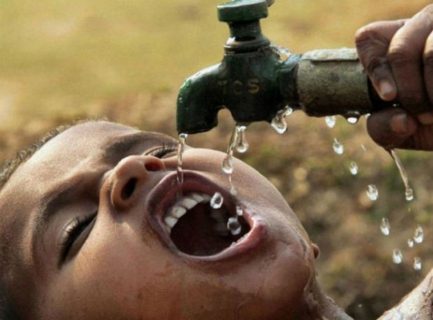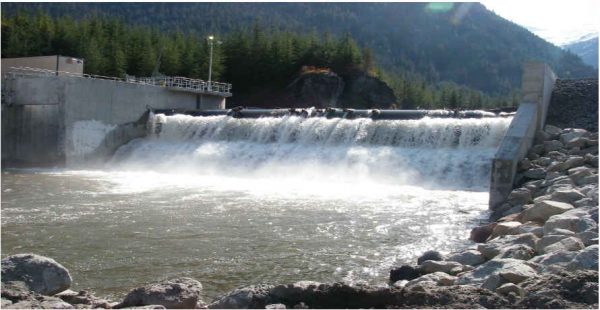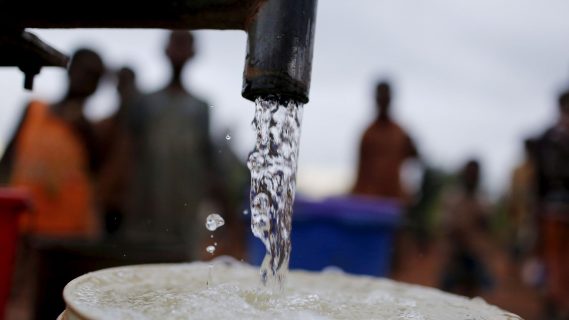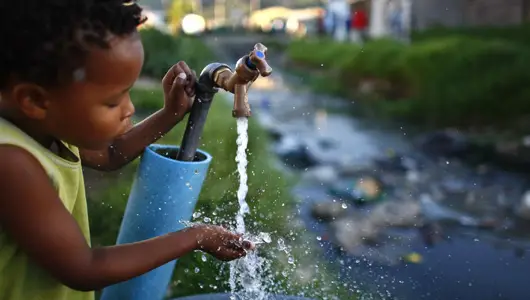Lilongwe Water and Sanitation Project’s pilot sanitation on-site component has led to the construction of 156 modern toilets. The toilets have been built in the densely populated areas of Chinsapo, Kauma, and Phwetekere. This has ignited hope for improved sanitation as well as a safer environment in the beneficiary areas.
Additionally, toilets that will be regularly emptied are currently under construction at Mtandire, Mgona, and Mtsiliza. According to Cleaverson Nyando at least 250 new, modern toilets will be established in each of the six areas. Nyando is the Lilongwe City Council’s coordinator for the project.
The World Bank is providing MK2.5 billion in funding for the pilot project, which intends to benefit 1,000 households. Later, the project will spread to many other densely populated areas of the City of Lilongwe. In total, the project will benefit 7000 more households in the following phase.
Aim for the Lilongwe Water and Sanitation Project’s pilot sanitation on-site component
According to Nyando the Lilongwe Water and Sanitation Project’s pilot sanitation on-site components goal was to create a safe environment. Lilongwe City Council’s coordinator for the project made the revelation while speaking recently in Chinsapo where a contractor had just concluded constructing 100 toilets.
He explained that most community toilets dump waste into the ground, causing water and environmental pollution. Moreover, Nyando called upon the people to use modern toilets that they could empty every now and then. Furthermore, he encouraged them to deposit the waste somewhere safe where it could be treated and managed as manure.
Lilongwe City Council’s coordinator for the project discouraged the use of ordinary toilets. He said that they require a lot of space because a new one must be dug up whenever the old one is full. With the use of the new modern toilets, Nyando said the areas taken up by ordinary ones could be used for “more productive purposes”.
Reported earlier
March 2018
Malawi set to renew water systems in Lilongwe

The Lilongwe Water Board in Malawi is looking to save up to US $770,000 which the company has been losing due to water wastage caused by old pipes which were bursting due to vandalism.
According to the Chief Executive Officer (CEO) for LWB, Engineer Alfonso Chikuni, the board has been losing a lot of money because the pipes have not been replaced for a long time.
With the aim of improving water supply and hygiene within Lilongwe City, LWB will embark on a project which will cost over US $100m on Water and Sanitation This project will not provide additional water sources. However, it will rehabilitate and renew water systems in the city.
Also read:Plans to merge Tanzania’s Dawasa and Dawasco advance
The Lilongwe Water and Sanitation Project is one of the investments under the broader Lilongwe Water Program- which is the Board’s medium-term investment plan.
The Program consists of a series of investment projects designed to address the immediate and medium-term water and sanitation needs, and support a long-term solution to Lilongwe City’s growing demand for improved water services and safely managed sanitation services. The Project is going to benefit about half a million residents.
Systems upgrade
Upon completion, the project will improve the system’s hydraulic capacity and reduce losses by ten percentage points. Two-thirds of the project funds will help rehabilitate and expand the water distribution network. This will include the construction of 27km of transmission mains and associated pumping stations and storage reservoirs.
Sanitation is another area that will improve once the project is complete. Only about 5% of the population of Lilongwe city is under a sewer system; the majority depends on onsite sanitation systems such as pit latrines and septic tanks.
There will be further support to construct 8,000 improved sanitation facilities. These will benefit about 160,000 people from poor and vulnerable households. Sanitation improvements will also cover some markets and schools.
Sanitation improvements will take up to about one-fifth of the project funds.
Malawi to receive US $102m for Lilongwe water project

Malawi is set to receive a US $102m fund for the Lilongwe Water and Sanitation Project (LWSP) following approval from the World Bank to fund the project.
LWSP co-task team leader, Mr. Odete Maximpua confirmed the reports and said the fund includes a US $75m credit and a US $25m from the international development. Two-thirds of the project funds will help rehabilitate and expand the water distribution network. This will include the construction of 27km of transmission mains and associated pumping stations and a storage reservoir.
Also read: Uganda to receive US $69m fund for water projects
Lilongwe Water and Sanitation project
The LWSP which is estimated to take six years will increase access to improved water services and safely managed sanitation services in Lilongwe City. 74% of the project will focus on the water system while the remaining 26% will focus on the sanitation of Lilongwe city.
According to Mr. Odete Maximpua, 500 new sewers will be installed and further support will be required to facilitate 8,000 improved sanitation facilities to benefit 160,000 people. The 500 sewers will is estimated to help 90,000 people.
Mr. Maximpua added that implementation of the project is being made possible by the Lilongwe city council(LCC) and Lilongwe water board who are working together to ensure that the project’s objectives are fulfilled. Water for the project will be pumped from Lake Malawi to the capital city.
April 2022
Malawi Receives $15 Million for Water and Sanitation Project in Dowa

The Opec Fund for International Development (OFID) is lending the Malawian government $15 million to improve water and sanitation facilities in Dowa town. A total of 100,000 people will benefit from the Dowa water project.
Abdulhamid Alkhalifa, Managing Director of the Organization of Petroleum Exporting Countries (OPEC) Fund for International Development, signed the loan agreement on April 15, 2022. The $15 million funding will expand the water and sanitation system in Dowa, Malawi’s major metropolis. Dowa now lacks safe facilities, leading to the spread of water-borne infections and a slowing of socioeconomic operations, according to OFID.
Development of the Dowa Water Project
A surface water pumping station in Dowa will be built as part of the project to serve a new drinking water facility. The proposed facility will have a daily capacity of 14,300 m3. The drinking water will subsequently be distributed to the new community water stations through a 51-kilometer-long distribution network. Existing water points will be restored as well.
Also Read: Karonga Water Supply and Sanitation Project Updates, Malawi
The Dowa water project will repair Dowa District Hospital’s sewage infrastructure on the sanitation front and establish sanitary facilities at the Dzaleka refugee camp. This project’s execution would move Malawi closer to the United Nations’ Sustainable Development Goal (SDG) 6, which seeks to ensure universal access to water and sanitation by 2030. According to OFID, nearly 88% of the population in the East African country has access to safe drinking water.
OFID’s assistance complements money given by the World Bank and the European Investment Bank (EIB) a few months ago. The World Bank lent $100 million to the Lilongwe Water and Sanitation Project through the International Development Association (IDA) in 2021. (LWSP). Malawi obtained a loan from the EIB the same year. The money will be used to expand the drinking water network in southern Malawi, particularly Balaka and Liwonde. This additional drinking water project will serve 150,000 people by the year 2050.

Leave a Reply